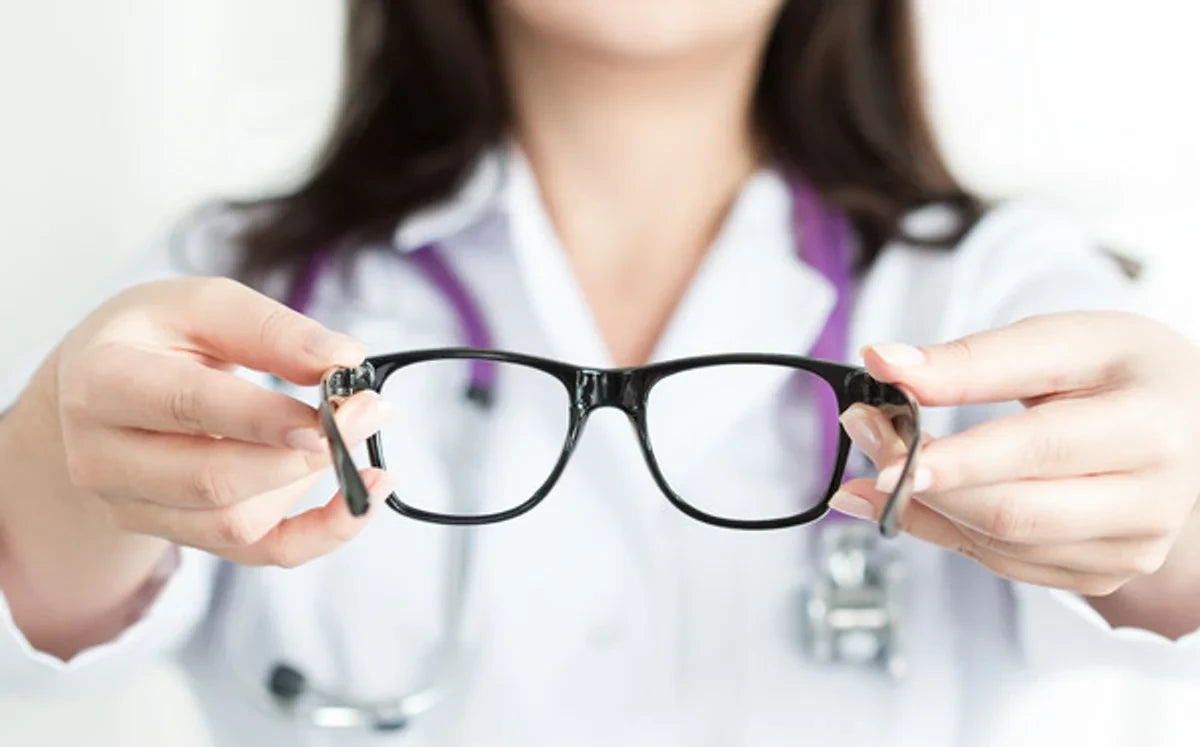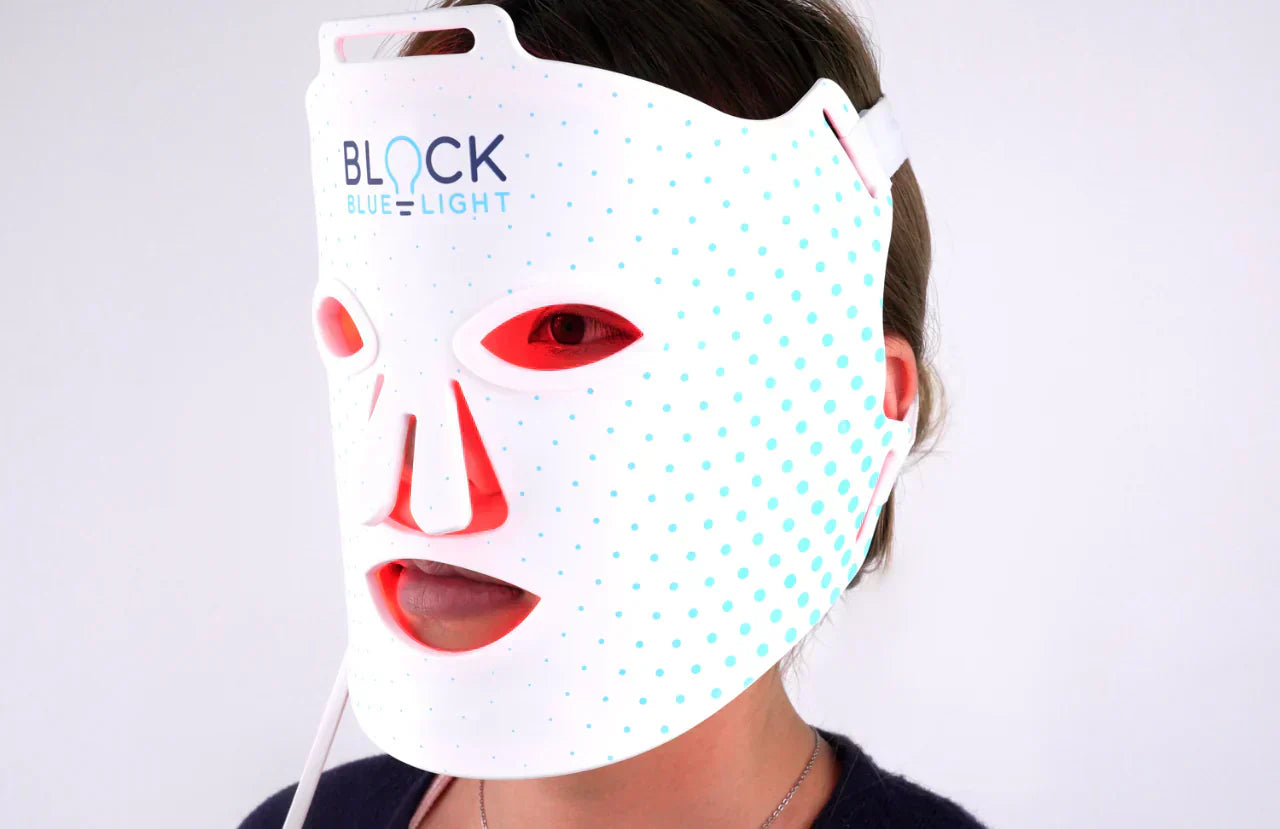Table of contents:
- What is blue light?
- Do doctors recommend blue light glasses for insomnia & sleep disorders?
- Do doctors recommend blue light glasses to improve sleep quality?
- Do doctors recommend blue light glasses for eye fatigue, digital eye strain/computer vision syndrome?
- If doctors recommend blue light glasses, then why all the controversy?
- FAQs
A quick google search for 'do doctors recommend blue light glasses' will lead you to several results claiming that there's a lack of scientific evidence that they prevent digital eye strain or help with sleep.
However, you'll also find contrasting articles online talking about the many benefits that wearing blue light blockers may bring to your life.
So in this article, we'll go through recent scientific studies on blue light and its effects to find the correct answer to the question,' do blue light glasses really work?'
Firstly, if you're unclear about Public enemy No.1, let me give you a quick science lesson to answer the question;
What is blue light?
Blue light is one of the 7 colors in white light. White lights (such as from LEDs) contain all the colors of the rainbow. If you split LED light with a prism, you'll see a rainbow come out the other end.
You're probably wondering; Out of all the colors, why is blue light problematic?
First, it carries high energy than the others because of its short wavelength, roughly 380-500 nm, with the peak light damage occurring at 440nm. Second, blue light communicates with the ipRGCs in our retina to communicate whether it's day or night. Read more about how blue light regulates your sleep-wake cycles here.
Now that you know exactly what we're dealing with, let's examine the research and answer the question; do blue light glasses work?
Do doctors recommend blue light glasses for insomnia & sleep disorders?
In 2014, a team of researchers from Switzerland and Germany did a study investigating the impact of blue light exposure on the circadian rhythm, sleep, and alertness in humans. The study included 13 healthy participants with a mean age of 16 years. The participants were exposed to blue light for 2 weeks in the evening.
The participants either wore blue light glasses or dummy control glasses to measure the difference.
Findings: Exposure to blue light before bedtime delayed the onset of melatonin production and disrupted sleep. Participants wearing the control glasses had lower melatonin levels and decreased sleep efficiency than those exposed wearing blue light glasses.
Limitations: The sample size was small and only included healthy young participants.
What does this mean for you?
Wearing evening or nighttime blue light glasses can help you fall asleep quickly by increasing melatonin production. Wavelengths from screens and artificial light suppress melatonin (melatonin is the hormone that helps us fall asleep and improve sleep quality).
Blue light glasses block these problematic wavelengths, allowing your body to produce melatonin naturally. This can improve your sleep quality and lead to better overall health.
Similar findings have been replicated in the following studies:
- Blue blocker glasses impede the capacity of bright light to suppress melatonin production
- Wearing blue light-blocking glasses in the evening advances circadian rhythms in patients with delayed sleep phase disorder
- Evening wear of blue-blocking glasses for sleep and mood disorders
- Block the light and sleep well: Evening blue light filtration as a part of cognitive behavioral therapy for insomnia
- Strategies to decrease social jetlag: Reducing evening blue light advances sleep and melatonin
Do doctors recommend blue light glasses to improve sleep quality and mood?
In 2009, researchers investigated whether using nighttime blue light glasses(amber-colored) before sleep could improve sleep quality and mood. The study was published in The Journal of Biological and Medical Rhythm Research and included 20 adult volunteers who were randomized to wear either blue-blocking (amber) or yellow-tinted (blocking UV only) safety glasses for 3 hours before sleep. The participants completed sleep diaries during a one-week baseline assessment and two weeks' use of glasses.
Findings: The results showed that the amber lens group experienced significant improvement in sleep quality and positive affect relative to the control group. Mood also improved significantly compared to controls. Limitations: However, the study had some limitations, including a small sample size and the use of subjective outcome measures.
Similar findings have been replicated in the following studies:
- The effects of blue-light filtration on sleep and work outcomes.
- The Clinical Effect of Blue Light Therapy on Patients with Delayed Sleep-Wake Phase Disorder
What does this mean for you?
Wearing evening or nighttime blue light glasses can help improve sleep quality and sleep duration by increasing melatonin production. Improved sleep leads to improved mood and overall health.
Do doctors recommend blue light glasses for eye fatigue, digital eye strain/computer vision syndrome?
In 2015, a team of researchers studied the effect of blue light glasses on reducing critical flicker frequency (CFF). Thirty-three participants were divided into three groups and wore one of 3 types of lenses while performing an intensive computer task for two hours.
Note: CFF refers to the rate at which a flickering light source appears completely steady to the human eye. CFF measures visual fatigue affected by screen time and exposure to blue light. Lower CFF values can indicate greater visual fatigue and discomfort, while higher CFF values can suggest better visual performance and less eye strain.
Findings: The type of lens worn significantly affected the CFF, with the higher blocking effect of the lens resulting in a lower reduction in the CFF, suggesting that blocking short-wavelength light can reduce eye fatigue.
In 2019 researchers from Emory Univ. School of Medicine (US) conducted A study with 10 participants to examine the effectiveness of blue light-filtering glasses on computer vision syndrome (CVS). Participants were randomly assigned to wear blue light-filtering or placebo glasses for 4 weeks. The results showed that the group wearing blue light-filtering glasses significantly reduced the severity of CVS symptoms, such as eyestrain, headache, and blurred vision, compared to the placebo group.
Limitations: The study had a relatively small sample size and was not double-blinded, which could have introduced bias. Additionally, the study relied on self-reported measures, which may not be as accurate as objective measures.
Similar findings have been replicated in the following study:
- Short-Wavelength Light-Blocking Eyeglasses Attenuate Symptoms of Eye Fatigue
- The effects of three blue light filter conditions for smartphones on visual fatigue and visual performance
What do these studies mean for you?
Despite their limitations, the studies show that daytime blue light glasses may effectively reduce CVS symptoms for those with extended screen usage.
If doctors recommend blue light glasses, then why all the controversy?
Although significant research and customers' own experiences have established the benefits of blue light glasses, there are some limitations. However, these limitations only apply to the ability of blue light blockers to reduce CVS. The sleep connection with blue blockers remains undisputed.
The main limitation of the studies mentioned above is the small sample size. Although the researchers favor blue light glasses, they claim that further research with a large sample size and a diverse population is needed.
Lastly, there are a couple of studies that outright found no difference between blue light glasses and regular glasses in combatting CVS or digital eyestrain. However, in such studies, the type of blue-blocking lenses used may be the issue. For blue light glasses to be effective, they must block a specific range of the spectrum at a specific intensity. Many blue light glasses found online are, therefore, utterly ineffective because they're not targeting harmful wavelengths.
So what should I do?
Whenever you're buying a health product, it's necessary to do your research. Blue light glasses are no different. Read this guide on what to look for when buying blue light glasses, or refer to this color guide to determine which color blue light lens you need.
At BlockBlueLight we're cautious about making products that align with science and your health and each of our products undergoes rigorous testing before it's released.
FAQs:
Do blue light glasses work?
The effectiveness of blue light glasses in reducing the negative effects of blue light on sleep and eye health is a topic of debate among experts. Most studies suggest that blue light glasses can help reduce eye strain and improve sleep quality, especially for individuals who spend a lot of time in front of digital screens. In addition, many users of such glasses have self-reported improved differences in their online reviews. However, further research is still needed on this topic. It's also important to note that blue light glasses should not be considered a substitute for healthy sleep habits and eye care practices, such as limiting screen time before bed and taking regular breaks from digital devices.
Why do doctors recommend blue light glasses?
Doctors may recommend blue light glasses for several reasons. Firstly, exposure to blue light, particularly in the evenings, can disrupt our circadian rhythm and make it harder to fall asleep. Blue light glasses can help reduce this effect by blocking blue light wavelengths that can interfere with our body's natural sleep cycle. Secondly, prolonged exposure to blue light from digital screens can cause eye strain, dryness, and discomfort, leading to Computer Vision Syndrome (CVS). Blue light glasses may help reduce these symptoms by filtering out blue light and reducing glare. However, it's important to note that blue light glasses should not be considered a cure for eye problems or sleep issues, and individuals should also practice healthy sleep habits and eye care practices to maintain good eye and sleep health.
Is it OK to wear blue light glasses every day?
Yes, it is generally safe to wear blue light glasses every day. Blue light glasses can be worn for extended periods and do not have any known negative effects on eye health or vision. In fact, wearing blue light glasses regularly may help reduce the risk of eye strain, headaches, and other symptoms associated with prolonged screen time. However, nighttime blue light glasses should not be worn during the day.





